Er komt een nieuw Gemeenschappelijk Landbouwbeleid van de EU (GLB; 'PAC' in het Frans, 'CAP' in het Engels) aan. Onze nieuwe minister van Landbouw, Carola Schouten reisde naar Parijs om daar vandaag op uitnodiging van haar ambtgenoot Stéphane Travert duidelijk te maken wat zij wil voor boeren tijdens de conferentie Faire le Cap sur le PAC ('Klare taal over het gemeenschappelijke landbouwbeleid').
Ze sprak met geen woord over de positie van Nederland als zwaar van export van eigen agrigrondstoffen afhankelijk land. Terwijl we vroeger varkensvlees, melk en room leverden voor in Franse worst, camembert en brie, loopt die positie terug door het keten- en voedselbeleid dat Frankrijk met zijn Etats généraux de l'alimentation heeft opgezet. Onze minister pleitte voor betere Europese faciliteiten om weers- (denk aan hagel die opstallen vernielen of buien die land onder water zetten) en dierziekterisico's (denk aan vogelgriep) van de smalle financiële schouders van boeren te halen. Tevens pleitte ze voor de vorming van gegroepeerde afzet van agrigrondstoffen.
Ze realiseert zich dat het budget voor het GLB krimpt ten gunste van immigratiebeleid en terrorismebestrijding. Ook maakt ze duidelijk het beleid van haar voorganger Van Dam voort te zetten: minder directe steun aan individuele boeren om hun vanuit het verleden verworven posities te ondersteunen.
Frankrijk en Nederland hebben heel ongelijke belangen in de EU. Nederland moet zo'n tweederde van zijn product als grondstof kwijt aan buurlanden en, als het daar niet kan worden verkocht, aan landen buiten de EU. Frankrijk heeft een beleid om 100% van zijn eigen productie te verwerken en als eindproduct in eigen land en het buitenland met meer- en merkwaarde te verkopen. De minister hield dat taboe - het druist feitelijk in tegen de principes van vrij grondstoffenverkeer waarop de EU is gebaseerd - in de coulissen bij haar eerste gesprek met de Fransen die in Europa op dit moment op het terrein van landbouw, financiën, energie en klimaat de leiding nemen in Europa met steun van de in eigen land nog formerende en daarom rustig opererende Angela Merkel.
In Nederland reorganiseert inmiddels de detailhandel de boerenketen. Dat is een kolfje naar de Franse hand. Het enige probleem is dat Nederlandse boeren maar voor een klein deel in eigen, Nederlandse ketens passen omdat onze boeren en tuinders in vrijwel alle sectoren 70% of nog veel meer (eieren, kasgroenten) moeten exporteren; geen enkele ander land ter wereld doet Nederland dat na. Onze Europese buren kiezen net als Frankrijk steeds vaker voor hun eigen boeren. Het dilemma dat daardoor in de open markt voor agriproducten in de EU ontstaat zal - naar mijn verwachting - in de komende jaren de verhoudingen tussen de Europese landen juist op het gebied van landbouw nogal veranderen. Nederland heeft een ongunstige uitgangspositie omdat ons land het sterkst exportafhankelijk is van primair product dat als grondstof de grens over moet, maar nu eenmaal weinig bijzondere toegevoegde waarde heeft. Het geld wordt verdiend met het product zoals het netjes in een netje, zakje, doosje of andere verpakking met een (huis)merk in het schap ligt, kan worden afgehaald of thuisbezorgd.
Ter bespreking en close reading nemen we de Engelstalige spreektekst van Schouten in zijn geheel over.
Excellencies, ladies and gentlemen, mesdames et messieurs,
It is my pleasure to have the opportunity to attend today’s “Cap sur la Pac” conference.
Shortly after I took my oath in The Hague, Minister Stéphane Travert invited me to come over to Paris for this special event, which is strongly connected to your États généraux de l’alimentation.An invitation that I was happy to accept, since this dialogue with society, announced by President Macron, inspires me and raises hope for the future of agriculture.
Bringing actors together and bridging conflicting interests for the common good, that is what we need in my view. As you are doing! It is one of my core values and of my political party, the ChristenUnie (in French: Union chrétienne). Connecting people and their interests and taking care of one another.
Stéphane Travert and I both took office only relatively recently, Stéphane in the government of Prime Minister Édouard Philippe under the presidency of Emmanuel Macron, and I myself in the new government of Mark Rutte. Both of us represent countries that are leaders in agriculture. And I soon discovered that Stéphane and I share a number of goals for agricultural policy.
The position of farmers in the food supply chain is under pressure. In my view, we need to empower farmers in order to realize a stronger bargaining position vis-à-vis powerful suppliers upstream and processors, traders and retailers downstream. Farmers need a fair price for their products. A price which has to account for the costs they make for respecting environmental and animal-welfare rules. A price allowing them for, as you say in French, vivre dignement de leur travail.
This means that the Common Agricultural Policy (CAP or PAC, as you like) should enable farmers to join hands in price negotiations. Producer organisations need to be strengthened. I believe that your États généraux is going in the same direction. The EU competition rules should permit this. The Treaty allows exemptions for agriculture and these exemptions need to be adequate and clear. Some progress has already been made with the Omnibus Regulation, but more needs to be done in the coming review of the CAP.
Farmers are increasingly confronted with production risks due to the changing climate and outbreaks of animal diseases and plant pests. Globalisation is causing increased price volatility in the meanwhile. The CAP needs to better empower farmers to cope with these risks. The current instruments of the CAP are poorly used and in need of review.
In the Netherlands, we have private weather insurances which work well, but still receive significant governmental subsidies. Participation is voluntary. We also have an animal health fund for covering risks of disease outbreaks. It is a mandatory large mutual fund, in which the farmers cover costs jointly up to a fixed maximum, above which the government steps in. France has other well-functioning insurances and funds.
In my view, leaving risk management entirely to the market will not do. We need to consider mandatory risk-sharing in certain areas as well as government financial support, in such a way that farmers participate in a basic safety net, carefully designed so as to avoid wasting tax payers’ money and distortion of competition.
That being said, I should share with you that in my opinion direct income support as we know it today is not the right tool to address such risks. It is not targeted, unless in conjunction with mandatory savings. Part of the support leaks away to other actors in the chain such as land owners.
What we need is a transition from classical income support, to targeted forms of support. Support for risk management on one hand. But also support for services rendered to society which the market will never reward, such as climate change mitigation, environmental services, protecting biodiversity and maintaining the agricultural landscape.
The challenges are steadily increasing: the Climate Agreement signed here in Paris, the UN Strategic Development Goals, depopulation of the countryside. In its current form, the CAP has been unable to deliver. We have to do better. Targeted payments, Paiements pour services environnementaux, are the answer. We need to adjust the economics of the CAP so that it will finally deliver what we need more and more. It is our joint responsibility to pass on a world to our children in which farmers can still farm as they do today, and in which the environment and the countryside are thriving and healthy.
By the way, collaboration between farmers will help here too. Experience in the Netherlands so far is very encouraging. Farmers are very happy to form cooperatives for protecting biodiversity, in our case for example meadow birds. The CAP just needs to enable them to do so without bureaucratic hurdles and hindrance from undue competition law.
So yes, we will need to negotiate in the European Council a fair share of the CAP budget for all of our Member States, that is something I agree on. However, convergence of direct income support is the road to the past, not to the future.
What the future requires is doing more with less. A better targeting of scarce resources and a rebalancing of social, environmental and economic needs. More sustainability in agriculture. A truly competitive agriculture, which incorporates social and environmental needs. Where joy and fortune - le Bonheur - are dans le marché tant qu’ils sont dans le pré.
As always, innovation will be indispensable for success. Bottom-up innovation in which farmers and scientists join hands.
Minister Travert, I really appreciate your invitation for today’s conference. More in general, I appreciate the collaboration between our services which has evolved over time on issues such as les paiements pour services environnementaux, la gestion des risques et innovation. From my side, I will be happy to invest in further collaboration between our countries. While not excluding any other Member State of course, I do feel that the thinking in France and in my country is more and more converging.
I hope and trust that a similar process will take place between all of our Member States in the coming period. We all need to bridge the differences in our approaches and interests and see how we could help one another.
That will only be possible if the CAP is modernised, simplified and more targeted than it is today. This will require more freedom for Member States in the implementation of the CAP according to national and regional needs. What we need is a CAP which defines EU policy objectives and targets to be met, with more subsidiarity for Member States as to achieving those targets. And, I am sure that you all know what I mean, a much simpler control system.
In other words, a strong European CAP with a level playing field, but flexibility for Member States in its implementation.I would like to congratulate the European Commission therefore with its Communication, which indeed sets out the right direction for the future.
Monsieur Travert, une fois encore un grand merci pour m’avoir invité à cette conference si intéressante. Bonne chance avec les États généraux de l’alimentation et mes meilleurs voeux à tous et toutes pour Noël et pour l’année prochaine.
Dit artikel afdrukken
Excellencies, ladies and gentlemen, mesdames et messieurs,
It is my pleasure to have the opportunity to attend today’s “Cap sur la Pac” conference.
Shortly after I took my oath in The Hague, Minister Stéphane Travert invited me to come over to Paris for this special event, which is strongly connected to your États généraux de l’alimentation.An invitation that I was happy to accept, since this dialogue with society, announced by President Macron, inspires me and raises hope for the future of agriculture.
Bringing actors together and bridging conflicting interests for the common good, that is what we need in my view. As you are doing! It is one of my core values and of my political party, the ChristenUnie (in French: Union chrétienne). Connecting people and their interests and taking care of one another.
Stéphane Travert and I both took office only relatively recently, Stéphane in the government of Prime Minister Édouard Philippe under the presidency of Emmanuel Macron, and I myself in the new government of Mark Rutte. Both of us represent countries that are leaders in agriculture. And I soon discovered that Stéphane and I share a number of goals for agricultural policy.
The position of farmers in the food supply chain is under pressure. In my view, we need to empower farmers in order to realize a stronger bargaining position vis-à-vis powerful suppliers upstream and processorsPeople matter, in agriculture as much as anywhere. Life on a farm is nice but is sometimes far from easy. I can tell, because I was raised on a small farm in a tiny Dutch village. But farming and food are at the basis of our existence. No food without farming. Farming matters, but farmers matter too.
The position of farmers in the food supply chain is under pressure. In my view, we need to empower farmers in order to realize a stronger bargaining position vis-à-vis powerful suppliers upstream and processors, traders and retailers downstream. Farmers need a fair price for their products. A price which has to account for the costs they make for respecting environmental and animal-welfare rules. A price allowing them for, as you say in French, vivre dignement de leur travail.
This means that the Common Agricultural Policy (CAP or PAC, as you like) should enable farmers to join hands in price negotiations. Producer organisations need to be strengthened. I believe that your États généraux is going in the same direction. The EU competition rules should permit this. The Treaty allows exemptions for agriculture and these exemptions need to be adequate and clear. Some progress has already been made with the Omnibus Regulation, but more needs to be done in the coming review of the CAP.
Farmers are increasingly confronted with production risks due to the changing climate and outbreaks of animal diseases and plant pestsWith respect to competition law: consumer interests should not be narrowed down to low prices alone. The environment and animal welfare also count for them. Prices should reflect the costs of adhering to such values too. A race to the bottom, supposedly in the consumer’s interest, is not the way to go.
Farmers are increasingly confronted with production risks due to the changing climate and outbreaks of animal diseases and plant pests. Globalisation is causing increased price volatility in the meanwhile. The CAP needs to better empower farmers to cope with these risks. The current instruments of the CAP are poorly used and in need of review.
In the Netherlands, we have private weather insurances which work well, but still receive significant governmental subsidies. Participation is voluntary. We also have an animal health fund for covering risks of disease outbreaks. It is a mandatory large mutual fund, in which the farmers cover costs jointly up to a fixed maximum, above which the government steps in. France has other well-functioning insurances and funds.
In my view, leaving risk management entirely to the market will not do. We need to consider mandatory risk-sharing in certain areas as well as government financial support, in such a way that farmers participate in a basic safety netTo what extent should such risk management instruments, or for example savings, be mandatory? How far should the government provide financial support? If so, how do we avoid crowding out of private initiatives?
In my view, leaving risk management entirely to the market will not do. We need to consider mandatory risk-sharing in certain areas as well as government financial support, in such a way that farmers participate in a basic safety net, carefully designed so as to avoid wasting tax payers’ money and distortion of competition.
That being said, I should share with you that in my opinion direct income support as we know it today is not the right tool to address such risks. It is not targeted, unless in conjunction with mandatory savings. Part of the support leaks away to other actors in the chain such as land owners.
What we need is a transition from classical income support, to targeted forms of support. Support for risk management on one hand. But also support for services rendered to society which the market will never reward, such as climate change mitigation, environmental services, protecting biodiversity and maintaining the agricultural landscape.
The challenges are steadily increasing: the Climate Agreement signed here in Paris, the UN Strategic Development Goals, depopulation of the countryside. In its current form, the CAP has been unable to deliver. We have to do better. Targeted payments, Paiements pour services environnementaux, are the answer. We need to adjust the economics of the CAP so that it will finally deliver what we need more and more. It is our joint responsibility to pass on a world to our children in which farmers can still farm as they do today, and in which the environment and the countryside are thriving and healthy.
By the way, collaboration between farmers will help here too. Experience in the Netherlands so far is very encouraging. Farmers are very happy to form cooperatives for protecting biodiversity, in our case for example meadow birds. The CAP just needs to enable them to do so without bureaucratic hurdles and hindrance from undue competition law.
So yes, we will need to negotiate in the European Council a fair share of the CAP budget for all of our Member States, that is something I agree on. However, convergence of direct income support is the road to the past, not to the futureA system of targeted payments for services for public goods will also take away current tensions between Member States about the level of the direct payments per hectare. The current differences are being perceived as unfair. With targeted payments for services for climate or biodiversity or whatever, there will be no risk of distortion of competition. Simply because the payments will cover the real costs, whatever the labour costs or land prices in Member States.
So yes, we will need to negotiate in the European Council a fair share of the CAP budget for all of our Member States, that is something I agree on. However, convergence of direct income support is the road to the past, not to the future.
What the future requires is doing more with less. A better targeting of scarce resources and a rebalancing of social, environmental and economic needs. More sustainability in agriculture. A truly competitive agriculture, which incorporates social and environmental needs. Where joy and fortune - le Bonheur - are dans le marché tant qu’ils sont dans le pré.
As always, innovation will be indispensable for success. Bottom-up innovation in which farmers and scientists join hands.
Minister Travert, I really appreciate your invitation for today’s conference. More in general, I appreciate the collaboration between our services which has evolved over time on issues such as les paiements pour services environnementaux, la gestion des risques et innovation. From my side, I will be happy to invest in further collaboration between our countries. While not excluding any other Member State of course, I do feel that the thinking in France and in my country is more and more converging.
I hope and trust that a similar process will take place between all of our Member States in the coming period. We all need to bridge the differences in our approaches and interests and see how we could help one another.
The new Multi-annual Financial Framework will clearly need to be downsized due to the regrettable Brexit. New EU policy priorities will require part of the budgetFinally, some words about the CAP budget. The new Multi-annual Financial Framework will clearly need to be downsized due to the regrettable Brexit. New EU policy priorities will require part of the budget. To me it seems inevitable that the CAP budget will be smaller than it is today. As I said already, we will need to do more with less.
That will only be possible if the CAP is modernised, simplified and more targeted than it is today. This will require more freedom for Member States in the implementation of the CAP according to national and regional needs. What we need is a CAP which defines EU policy objectives and targets to be met, with more subsidiarity for Member States as to achieving those targets. And, I am sure that you all know what I mean, a much simpler control system.
In other words, a strong European CAP with a level playing field, but flexibility for Member States in its implementation.I would like to congratulate the European Commission therefore with its Communication, which indeed sets out the right direction for the future.
Monsieur Travert, une fois encore un grand merci pour m’avoir invité à cette conference si intéressante. Bonne chance avec les États généraux de l’alimentation et mes meilleurs voeux à tous et toutes pour Noël et pour l’année prochaine.
Nog 3
Je hebt 0 van de 3 kado-artikelen gelezen.
Op 5 mei krijg je nieuwe kado-artikelen.
Op 5 mei krijg je nieuwe kado-artikelen.
Als betalend lid lees je zoveel artikelen als je wilt, én je steunt Foodlog
Lees ook
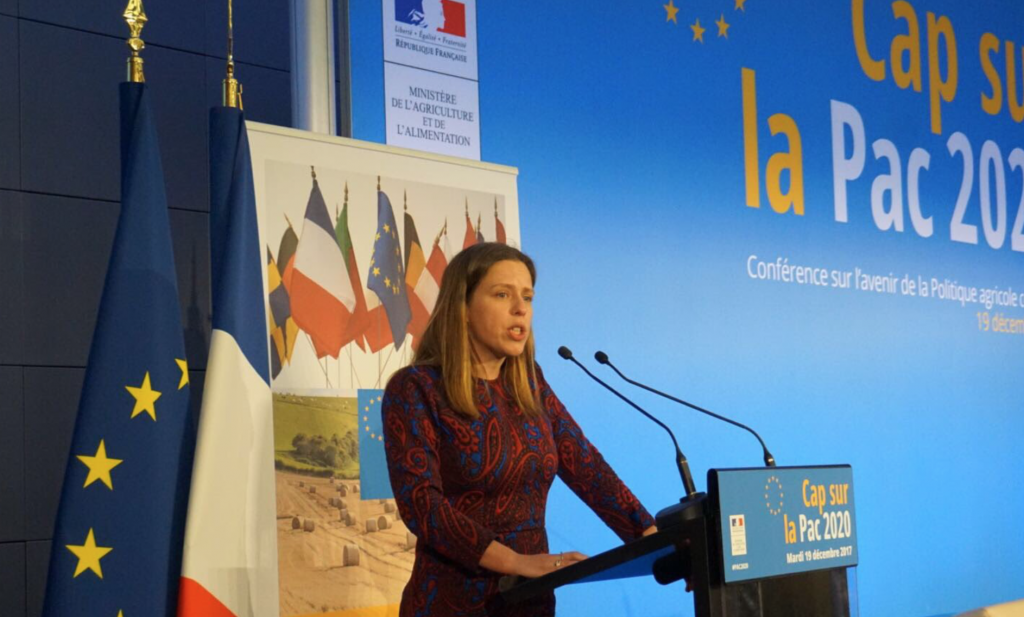
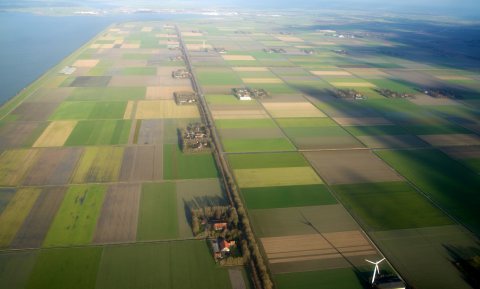
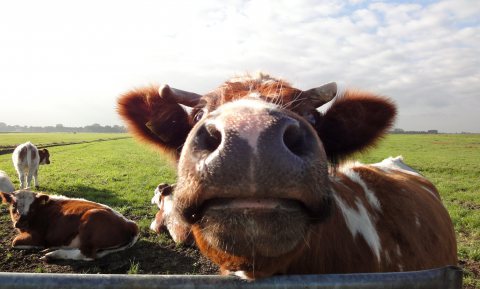
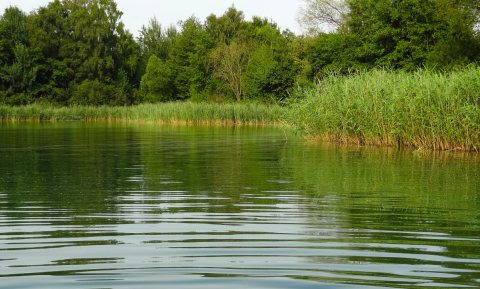
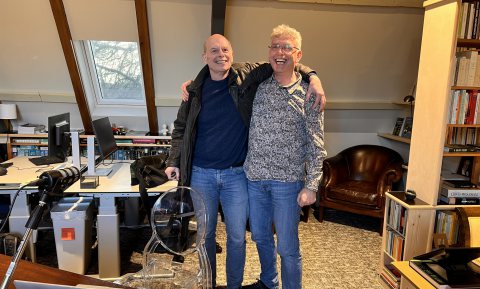
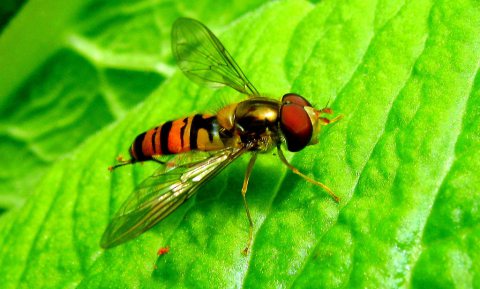

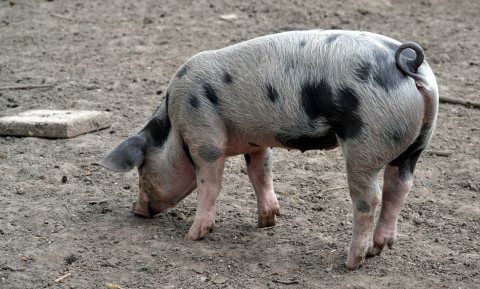
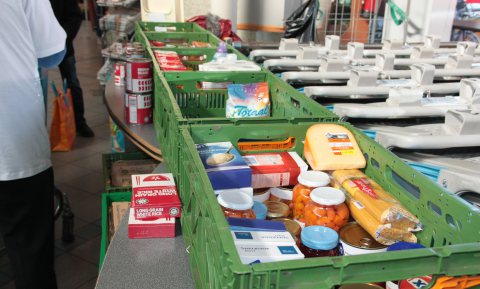
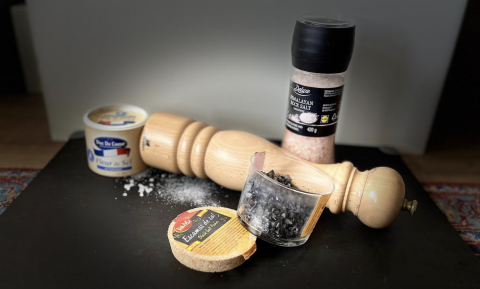
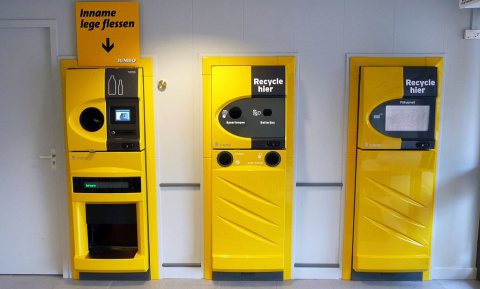
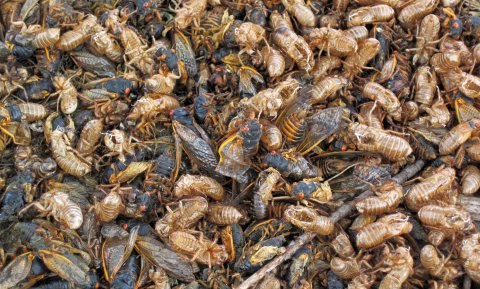
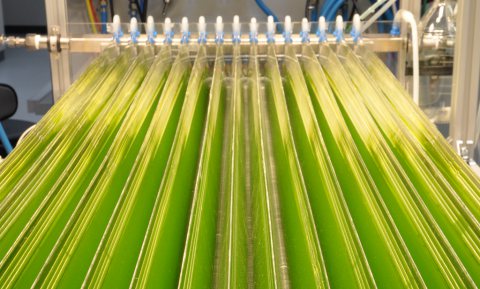
Maren, ik denk dat zelfs voor grondstoffen die waarde toevoegen aan het eindproduct plaats is. Dat kan van melk en tomaten tot, zeer zeker, eieren. Dat leer ik mijn studenten in het agrarische onderwijs. Dus: jazeker, op voorbaat eens. Maar ..... je moet wel weten wat je doet.
(By the way, niet-medicinale cannabis doet het financieel meer dan uitstekend in het illegale circuit en schijnt minder kwaad te kunnen dan legaal alcoholmisbruik door consumenten)
Mee eens Dick. Voor de productie van commodities of grondstoffen heeft Nederland geen toekomst. Maar voor speciale grondstoffen komt een enorme kans op, mits de overheid het toelaat: medicinale cannabis.
Maar er zijn lichtpuntjes in de tuinbouw. Onze sierteelt (toch zo'n 4.500 ha glas en 25.000 ha bloembollen) is de top van de wereld in kwaliteit, assortiment en efficiency. Het rozenaraal groeit zowaar weer en dat zijn inmiddels grotendeels topsoorten. In kasgroenten is er naast 'gewoon tomaten' allerlei Nederlands product wat gretig aftrek vindt in Europa. Retailers lopen steeds meer warm voor Nederlandse wintertomaten (de helft van het areaal is inmiddels belicht). De export van het grove trostomaten naar Spanje en Italie in de zomermaanden neemt al jaren gestaag toe. Omdat ze betaalbaar zijn maar ook omdat deze (uiterlijke) kwaliteit daar niet geproduceerd wordt. Sinds de Tuinderstroonrede is er weinig veranderd maar staan de koplopers in tomatenteelt er goed voor, er wordt sinds twee jaar weer geïnvesteerd.
Zo simpel is het inderdaad te zeggen. Dank daarvoor!
Nederland kan op de duurste plek ter wereld niet gewoon doorgaan met het maken van grondstoffen voor derden (en met dromen dat die een 'hoge toegevoegde waarde' kunnen hebben).
De markt lost het probleem inmiddels vanzelf op. Het beleid - maar geef de minister even de tijd om te leren en te zien waar de crux zit - maakt die draai nog niet omdat het de toekomst òf niet ziet òf niet weet hoe die te organiseren.
De Franse uitnodiging aan Nederland beschouw ik als bijzonder: de twee landen zijn elkaar grootste antipoden als het om belangen op het gebied van agri aankomt en zelfs EU-belangen in het algemeen aankomt.
Piet, je hebt nog meer gelijk* dan je denkt: Blokker en Marskramer moeten een Action worden, weinig andere keus, maar dat kunnen ze helemaal niet. En zoiets geldt ook voor de Nederlandse landbouw. Zo beter?
*Cote d'Or in 1883 opgericht door een Belg en in 1983 verkocht aan Jacob Suchard Kraft.
#2 Jan Peter. Onze landbouw is geen Action, maar Blokker, Marskramer. En Cote d'Or is Belgisch. Maar verder klopt wel wat je schrijft.